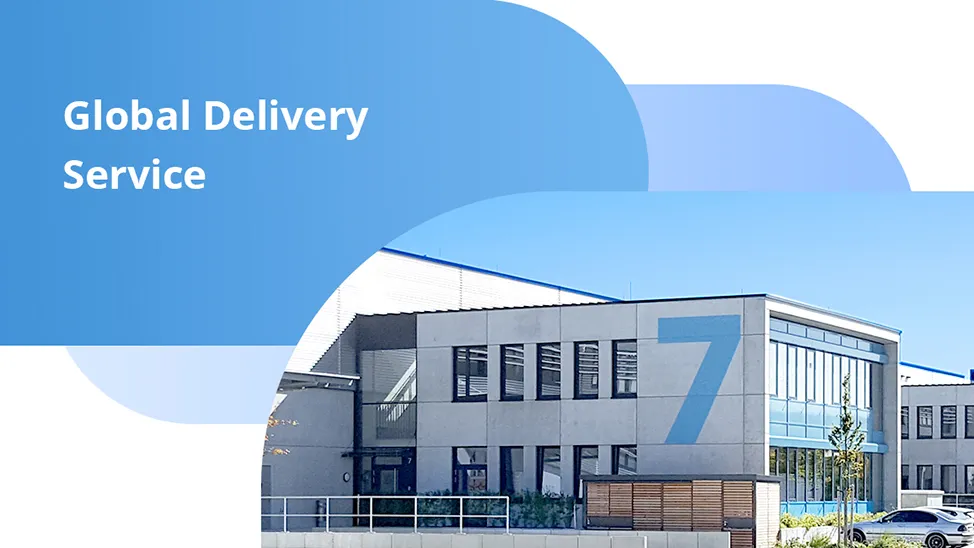The Convergence of HPC and AI: Accelerating Innovation
High-Performance Computing (HPC) and Artificial Intelligence (AI) are two transformative technologies reshaping industries and driving significant advancements in science and business. While each technology independently offers substantial benefits, their convergence has the potential to accelerate innovation at an unprecedented pace. This article explores how the integration of HPC and AI is driving rapid advancements, the challenges faced, and how FS supports HPC and compute-intensive workloads.
The Synergy of HPC and AI
In today's dynamic business landscape, speed and quality are paramount for success. High-performance computing (HPC) plays a vital role in achieving these goals across various industries.
To drive operational efficiencies, accelerate decisions, and foster growth, enterprises are increasingly adopting generative artificial intelligence (gen AI). We believe that the convergence of HPC and AI is crucial for maintaining competitiveness.
These cutting-edge technologies complement each other by offering unique benefits. HPC provides the necessary infrastructure to process vast amounts of data and perform complex computations at unprecedented speeds. AI, on the other hand, leverages this computational power to train deep learning models, analyze massive datasets, and extract valuable insights.
In the era of data centers and hybrid cloud, FS HPC solutions empower organizations with the computing power necessary for thriving. This integrated solution encompasses computing, network, storage, and security components, addressing regulatory and efficiency demands for enterprises.
Technical Challenges and Solutions
Data Management and Storage
Handling and storing massive datasets is a significant challenge. Solutions include scalable storage systems and advanced data management techniques that ensure data integrity and accessibility.
Network and Infrastructure
Supporting HPC and AI workloads requires robust, high-performance network infrastructure. InfiniBand and RDMA over Converged Ethernet (RoCE) are examples of technologies that offer high bandwidth and low latency necessary for efficient data transfer.
Software and Algorithm Optimization
Optimizing software and algorithms for HPC and AI applications is critical for performance. This involves parallelizing code, reducing computational overhead, and leveraging specialized hardware like GPUs and TPUs.
Energy Efficiency and Sustainability
The energy demands of HPC and AI are substantial. Strategies to improve energy efficiency include using more efficient processors, optimizing cooling systems, and adopting renewable energy sources.
Accelerating Results with HPC and AI: Industry Applications
Data is at the core of driving enterprise transformation, providing insights that accelerate innovation. Organizations often have vast repositories of data from traditional HPC simulation and modeling workloads. By leveraging these sources, they can apply HPC and AI to the same challenges, generating deeper and more valuable insights to drive faster innovation.
Intelligent Simulation in the Automotive Industry
AI-guided HPC, or intelligent simulation, streamlines the simulation process. In the automotive industry, this accelerates the innovation of new models. As vehicle and component designs evolve, significant modeling changes are made to optimize aerodynamics, noise, and vibration.
Evaluating these changes across various conditions, such as different road types, can prolong development. However, the market demands rapid release of new models, and extended development cycles can negatively impact sales and customer loyalty.
Automotive manufacturers can train AI models using extensive data from existing designs. This helps identify the best areas for optimization, narrowing down the problem space and allowing traditional HPC methods to focus on specific design aspects. This approach produces higher-quality products in less time.
Enhancing Electronic Design Automation (EDA)
In electronic design automation (EDA), AI and HPC are crucial for innovation. The semiconductor industry requires billions of verification tests to validate chip designs. When errors occur, re-running all tests is impractical due to resource and time constraints.
EDA companies use AI-enhanced HPC to identify which tests need re-running, saving significant compute cycles and maintaining manufacturing timelines. This ensures faster delivery of semiconductors to customers.
How FS Supports HPC and Compute-Intensive Workloads
FS designs infrastructure to provide the flexibility and scalability necessary to support HPC and compute-intensive workloads. For example, in InfiniBand solutions, based on the NVIDIA® H100 GPU, along with PicOS® software and AmpCon™ management platform, the solution is tailored according to the network topology of HPC architecture, including InfiniBand network, management network, and storage network, to meet various business needs.
-
1. InfiniBand network: Powered by NVIDIA® H100 GPU and InfiniBand switches, the Infiniband network features ultra-low latency and high bandwidth, ensuring lossless transmission with flow control and CRC redundancy checks.
-
2. Management network: The FS switches can utilize the advanced PicOS® software and AmpCon™ management platform feature sets to empower customers to efficiently provision, monitor, manage, preventatively troubleshoot, and maintain the HPC infrastructure, realizing higher utilization and reducing overall opex.
-
3. Storage network: FS PicOS® switches support the BGP protocol with powerful routing control capabilities while ensuring the optimal forwarding path and low-latency forwarding status of the storage network. Meanwhile, it is flexible and can scale to meet specific capacity and bandwidth requirements.
As enterprises seek solutions for their most complex challenges, FS is committed to helping them overcome obstacles and thrive. In addition to HPC InfiniBand solutions, FS also provides Ethernet solutions. You can contact our technical experts, who will tailor an HPC solution.
Conclusion
The convergence of HPC and AI is a powerful driver of innovation, offering significant benefits across multiple domains. By enhancing computational power, improving data processing, and supporting real-time applications, this integration is poised to transform industries and accelerate advancements. As technology continues to evolve, embracing HPC and AI will be crucial for organizations aiming to stay ahead in a competitive, rapidly changing landscape. As a communication solution provider that keeps pace with the times, FS actively supports the integration of HPC and AI in the future. We can provide a series of HPC solutions. Please contact us for consultation.
You might be interested in
Email Address

-
PoE vs PoE+ vs PoE++ Switch: How to Choose?
May 30, 2024















